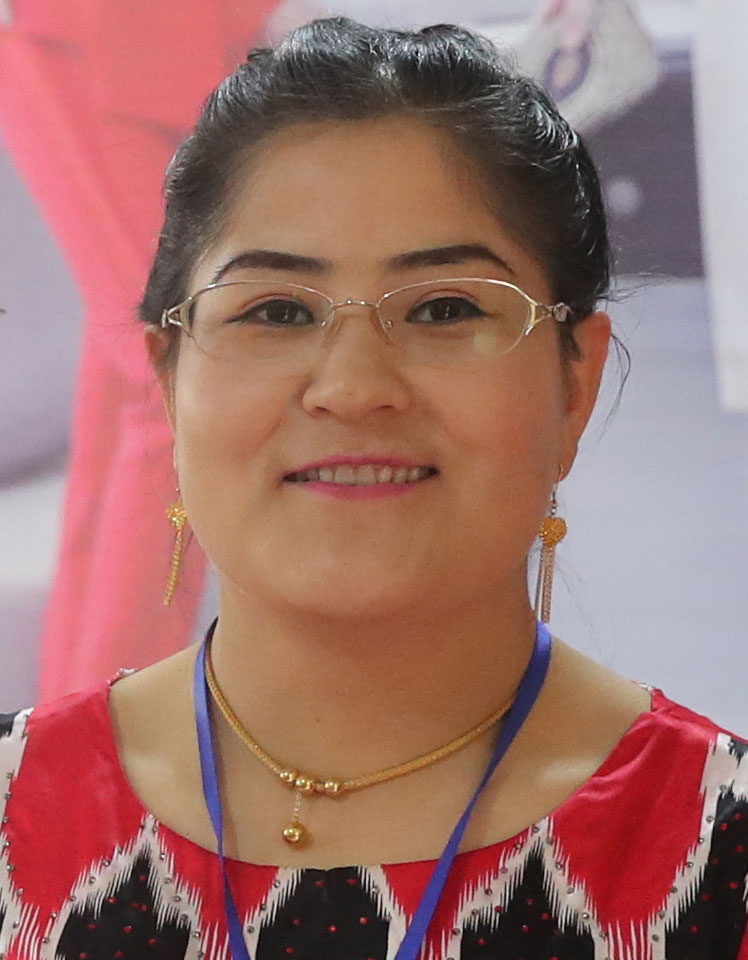Xinjiang vocational schools offering hope


Running a tailor shop of her own in Hotan prefecture, the Xinjiang Uygur autonomous region, Dunisa Abdula said she is grateful for the three months she spent at the local vocational education and training center.
"If I had not gone to the center to receive education, I might have fallen further into the quagmire of extremism and might have been imprisoned for having done unlawful things," said the 28-year-old in Moyu county.
Dunisa used to be an employee of another tailor shop and had a happy family life with her husband and daughter. But influenced by religious extremism via the internet, she started to disseminate similar thoughts online and often quarreled with others who she believed to be "apostates", including her husband.
"Under the influence of others, I started doing as they told me to and also forced women around me to do so," Dunisa said. "My husband couldn't bear it anymore and divorced me."
Dunisa said her father persuaded her to attend the local vocational education and training center where she was offered classes in standard spoken and written Chinese, laws and vocational skills with other trainees.
Steering clear of terror
According to a white paper on vocational education and training in Xinjiang, terrorist and extremist forces launched thousands of terrorist attacks from 1990 to the end of 2016, causing the deaths of large numbers of innocent people and hundreds of police officers.
Education and training centers have since been established in the region in accordance with the law with the goal of "educating and rehabilitating people guilty of minor crimes or lawbreaking and eradicating the influence of terrorism and extremism, in order to prevent them from falling victim to terrorism and extremism", the white paper said.
Memhetsidik Memhetniz, a trainee at the center in Moyu, said the training helped him realize what a "stupid mistake" he had made.
Affected by some extremists, the 26-year-old had treated government staff as "heretics" and often cursed them. He even smashed the car of a local government worker.
"With the help of teachers at the center, I've realized my fault. What I did in the past was totally wrong," he said while practicing making dumplings in the cooking classroom of the center.
"Now I hope I can learn cooking skills well, open a restaurant of my own after graduation and start a new life."
Saypura Abdurayim, a trainee at the same center, said laws he learned about at the center made him understand what a Chinese citizen should or should not do, as well as what real religion is.
Being unable to find a decent job, the 22-year-old had been helping his mother with farm work at home since graduating from junior high school.
A year ago, affected by extremism, Saypura picked on local government workers as they were all "nonbelievers".
"If I had known about such laws earlier, I might have not fallen for religious extremism," he said.
Memhet Juma, imam of Id Kah Mosque in Kashgar, whose father was a victim of terrorism, said he supported local authorities' measures to fight extremism.
On July 30, 2014, Memhet's father Juma Tahir, former imam of the mosque, was killed by three terrorists on his way home after morning prayer.
"My father's death left my family anguished. We hated the extremists so much," said the 49-year-old.
"Many people affected by extremism are very young, often less-educated and have little knowledge about religion. It's necessary to offer free training to these people," Memhet said.
"The measures have made society safer and more stable."
Memhet Memhetmin, imam of a mosque in Moyu, said that he used to feel insecure as a religious cleric and worried about his own safety due to threats from extremists. "Now Xinjiang has become more secure than before, and I feel much safer than before," said the 24-yearold.
Better job prospects
Abliz Baysham, headmaster of the Moyu center, said her facility offers a portfolio of skills from music, dance and fine arts to cooking, hairdressing and interior decoration. Trainees can choose to focus on one subject from a total of 15 in accordance with their own interests or career plans.
Dunisa chose sewing skills on the basis of her previous occupational background, while Saypura chose to study fine arts, which he likes and already knows something about.
Working on a landscape oil painting in an art classroom at the center, Saypura told China Daily that he met good teachers who lectured on a wide range of painting skills such as sketching, watercolors and oil painting.
His painting skills have since improved greatly.
"In fact, our graduates are quite competitive in the employment market as they all have practical skills needed by employers," Abliz said.
For trainees who want to start their own businesses, the center and local authorities will also lend a hand.
Dunisa, now the proud owner of a tailor shop, said the local government invested 30,000 yuan ($4,260) and helped her open the shop.
Now employing 18 people and making a monthly revenue of 30,000 yuan by producing school uniforms, Dunisa can earn at least 4,000 yuan of her own each month, about 2,000 yuan more than her monthly income before going to the training center.
"My biggest hope for now is to expand my business and take more orders," she said.
- Flash floods leave 15 dead, 28 missing in Gansu
- Foshan succeeds in curbing the spread of chikungunya
- Death toll in mountain torrents in NW China's Gansu rises to 13
- Robot-themed restaurant integrates dining with technology
- China's summer box office surpasses 8b yuan
- Flash floods batter Gansu townships





































